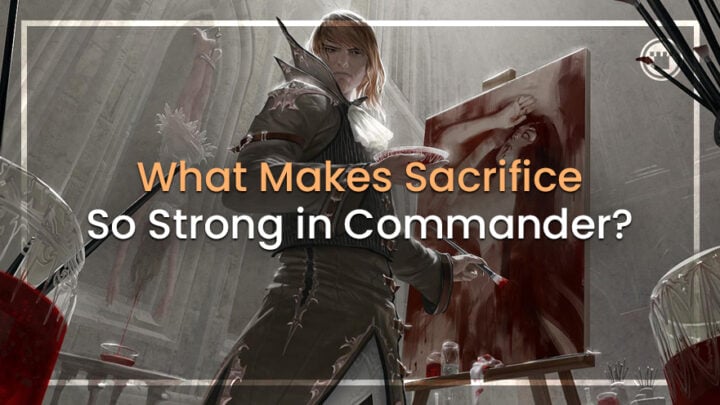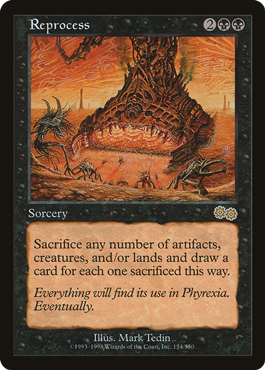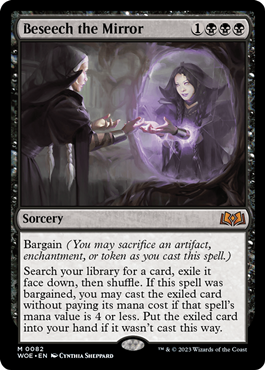Over the years, Magic has invented a multitude of mechanics to build decks around, each with its own unique advantages, dedicated support cards and memorable payoffs. But when all of those archetypes are thrown together into the grand melting pot of Commander, a few top-tier choices stand out. They offer versatile deck building options, consistent performance across different areas of the game and power ceilings which border on unbeatable. This week, we’re looking at decks built around sacrifice mechanics in Commander.
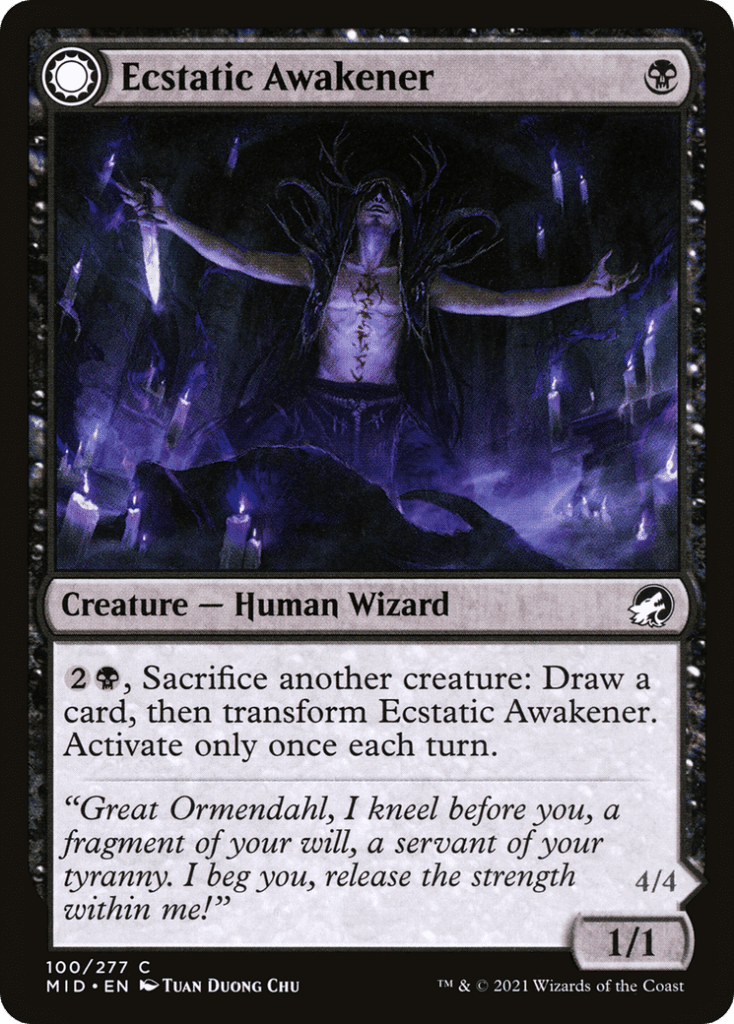
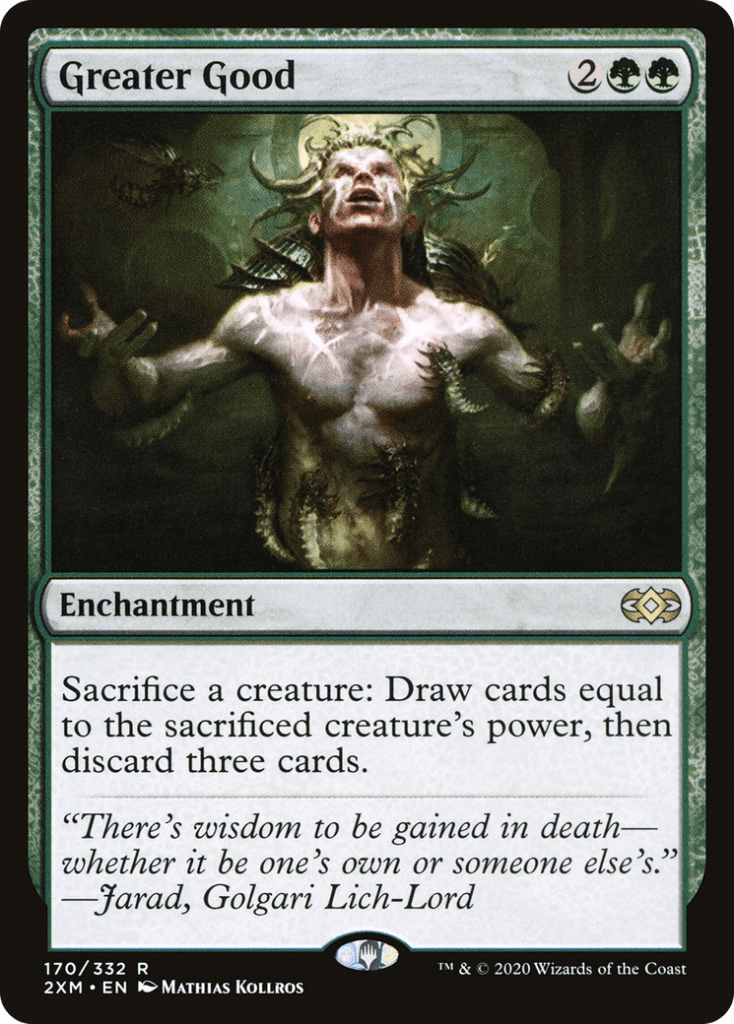
At a fundamental level, these decks have much in common with popular depictions of alchemy. Both disciplines are fixated on exchanging resources for other resources at ever-more-efficient rates. Both share the end goal of eventually concentrating those amassed resources to achieve a single transcendent goal, such as infinite life. And in both cases, the best way to get results is to not be too squeamish about what you’re willing to consider “resources.”
Sacrifice synergy decks have an incredibly well-rounded threat profile, terrifying explosiveness and a deep bag of unique tricks that make them a thrill to play. It is among Magic’s oldest and most fundamental archetypes, yet strangely well equipped for the modern meta.
Gather round the altar and we will learn the secrets of sacrifice.
USE EVERY PART OF THE BALOTH
Conceptually, at least, the big appeal of effects with sacrifice costs is they do more than non-sacrifice equivalents. Most effects that require you to give up your permanents are very powerful in order to justify that cost.
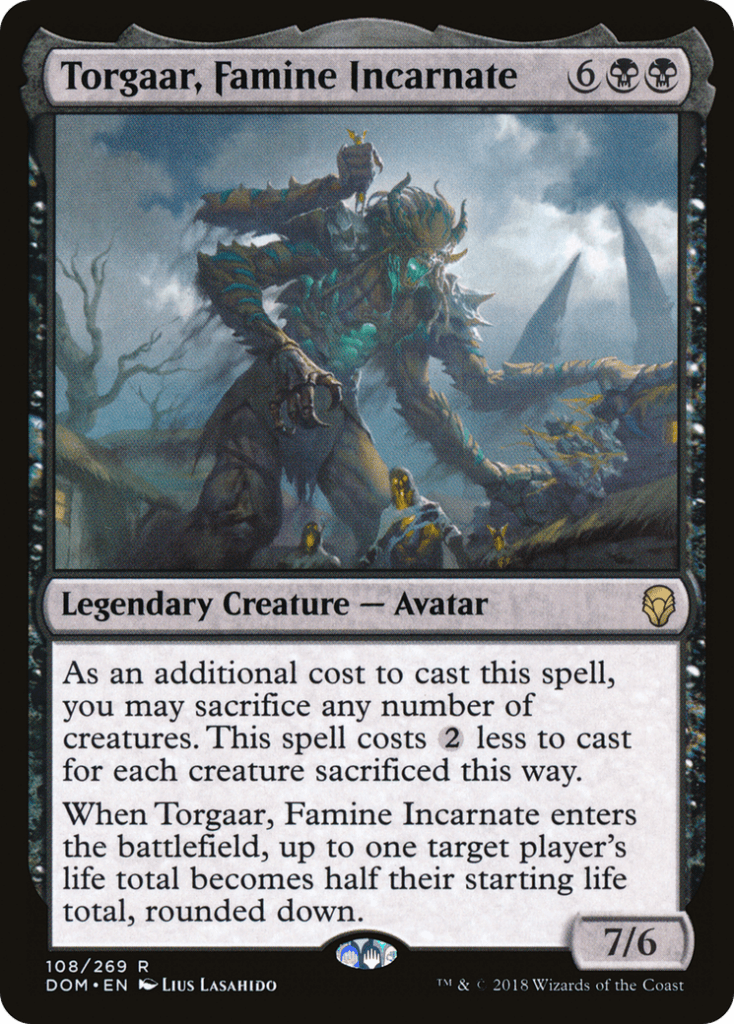
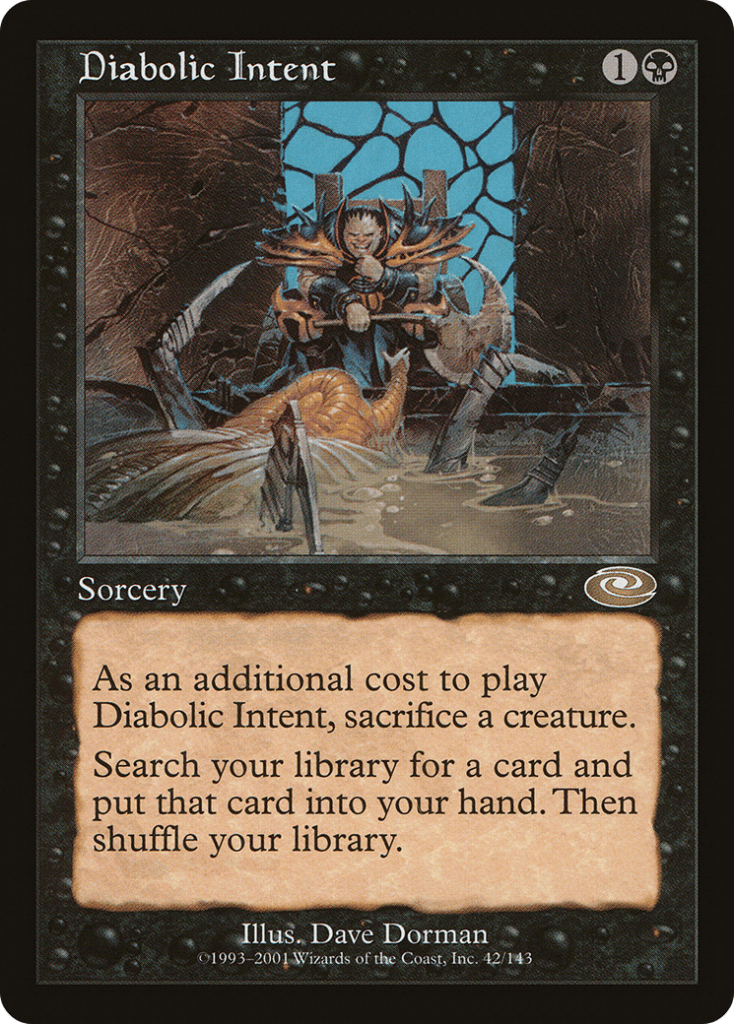
Since sacrifice costs see any permanents you feed them as being equally worthy payment, this already gives us an easy way to break them: just spend the smallest, least valuable permanent for the same big payoff. But if big payoffs are the source of real power here, why is the idea of a “sacrifice outlet” so universal?
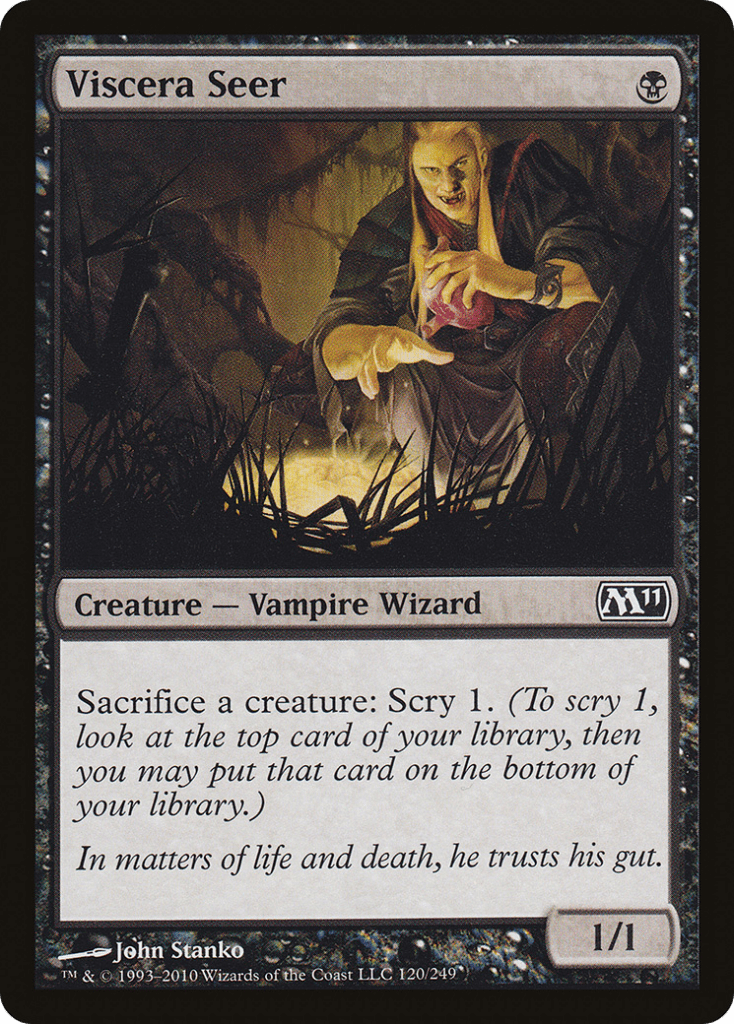
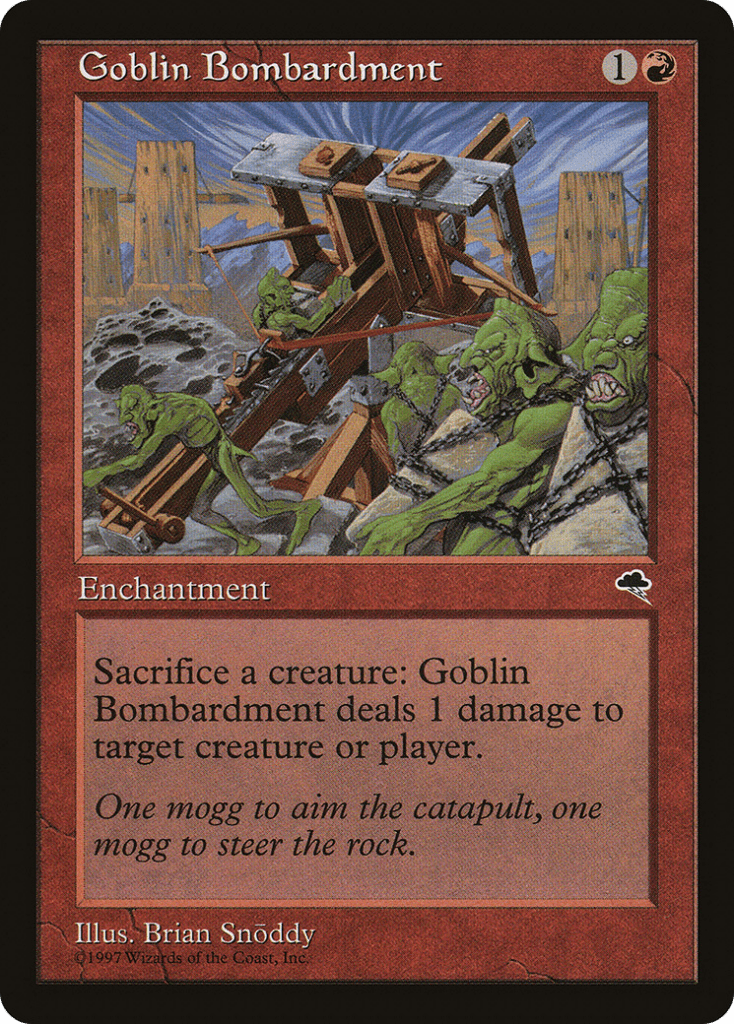
In fact, Commander features many situations where being able to cash in your current permanents for any return is a win. It’s really just further exploring that same false equivalence: that all creatures, or all permanents, are equally valuable. Getting an efficient sac outlet online lets you play Magic like a wild-eyed day trader, ready to cash in your permanents in any scenario where they look like their value is about to dip:
- When they’re about to die to removal or sweepers, or if they are neutralised by negative auras.
- When it’s an opponent’s permanent you’re only temporarily controlling and would have to give back to them.
- When those permanents have death triggers you need to get on the stack, or you are otherwise trying to get into your graveyard.
- Or when the game state simply no longer favors that permanent’s strengths — a mana dork once you’ve curved out and emptied your hand or a one-drop that is heavily outgunned in the late-game boardstate.
You may not get that much value back for each sacrifice individually, but that’s a lot more than the zero value most decks are getting in these scenarios. These minor freebies really add up over the course of a game, especially when you consider how many permanents the average Commander deck can generate — and that’s before you factor in any additional triggers you’re leveraging in the process!
It turns out that feeding the bulk of your permanents into the Phyrexian Processor is beneficial, even when it’s not in exchange for some big reward. And nothing screams “dominant mechanic” more than “the supposed cost is actually just more upside.”
TIME OF DEATH
Another baked-in source of strength for sacrifice effects is the freedom of timing they enjoy. Because you almost always sacrifice as part of a cost rather than on resolution of the effect, it’s immensely difficult to contest the important part of the mechanic on the stack.
Sacrifice outlets are also too diverse in their function to be easily “switched off” by a single counter card unless it’s incredibly specific (Angel of Jubilation or Yasharn, Implacable Earth come to mind).
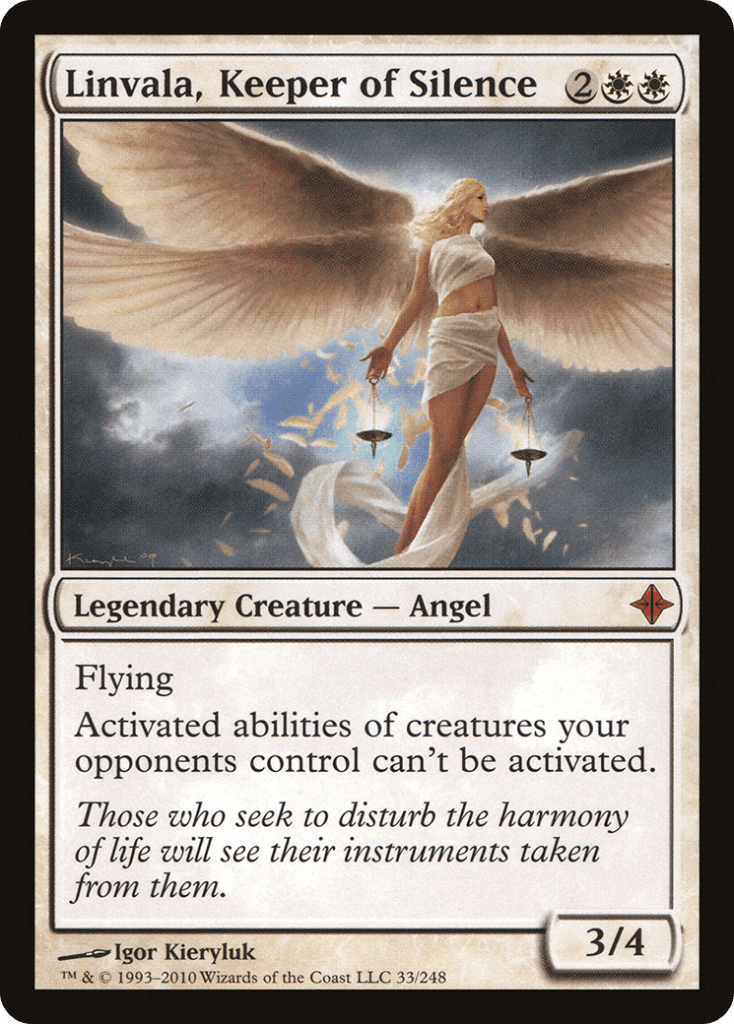
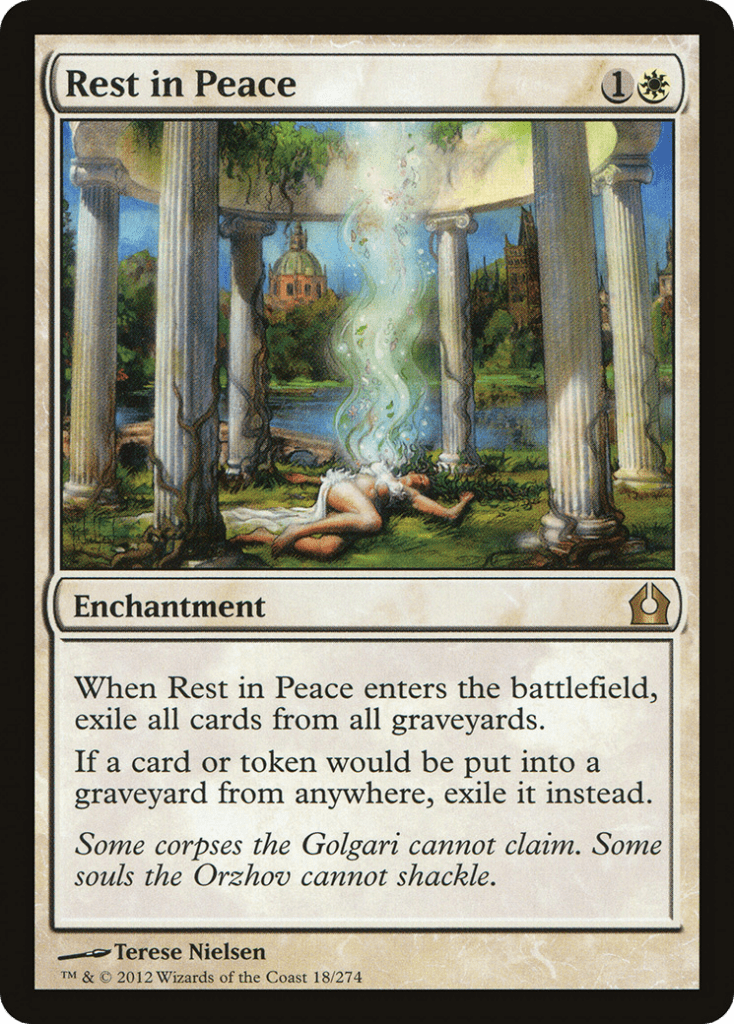
The idea of wielding sacrifice abilities as a tool to control the table gets even more appealing when you realize how low the opportunity cost of doing things this way is. With minimal mana costs on these sorts of abilities, there’s no need to tap yourself out every time you act, or to give new information away to opponents. This should, theoretically, allow you to interact and pressure opponents exactly as you see fit while dodging the worst consequences of their interaction.
But the most obviously broken aspect of this unparalleled flexibility in timing shows up when the sacrifice decks do what they do best: combo off.
INFINITE PRESSURE
Arguably the greatest selling point of sacrifice decks is they lend themselves extremely well to infinite combos.
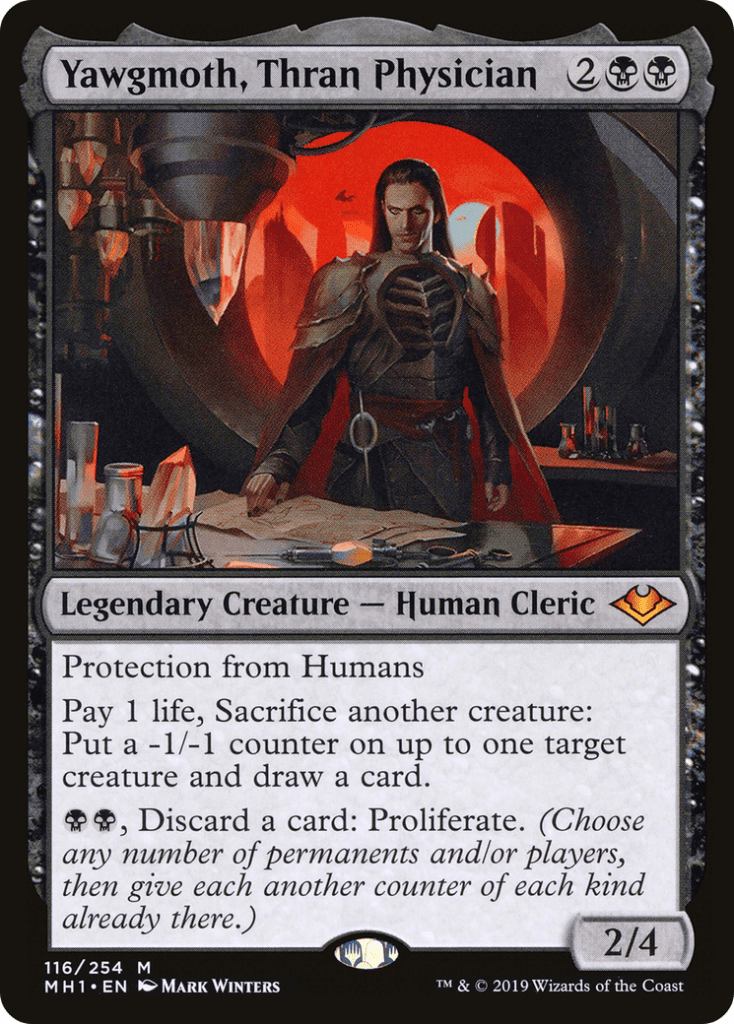
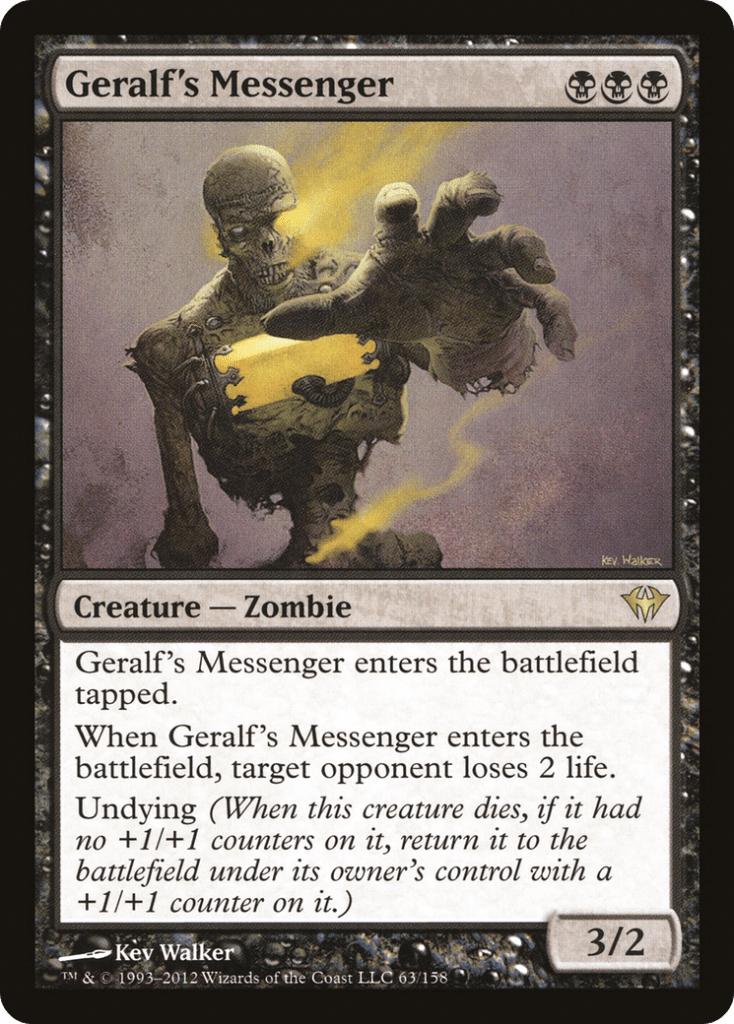
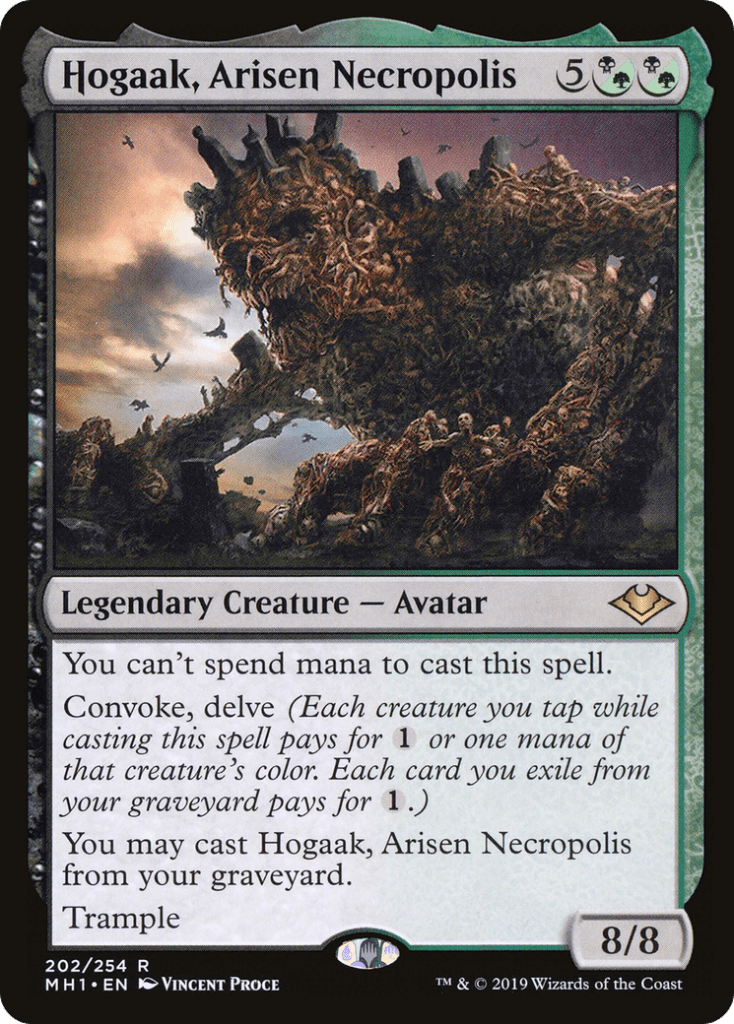
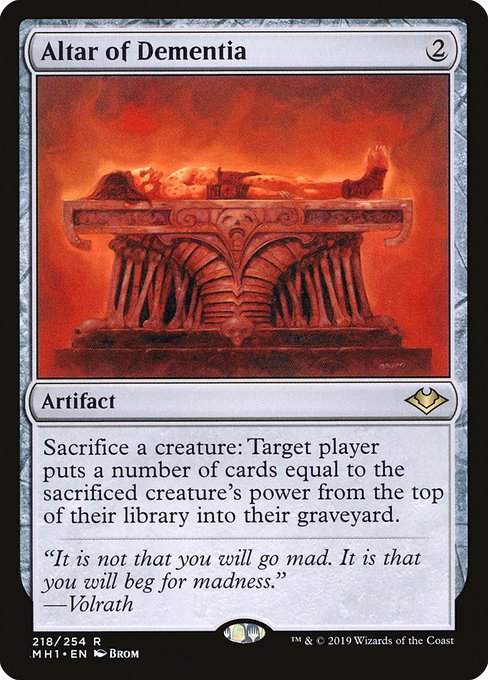
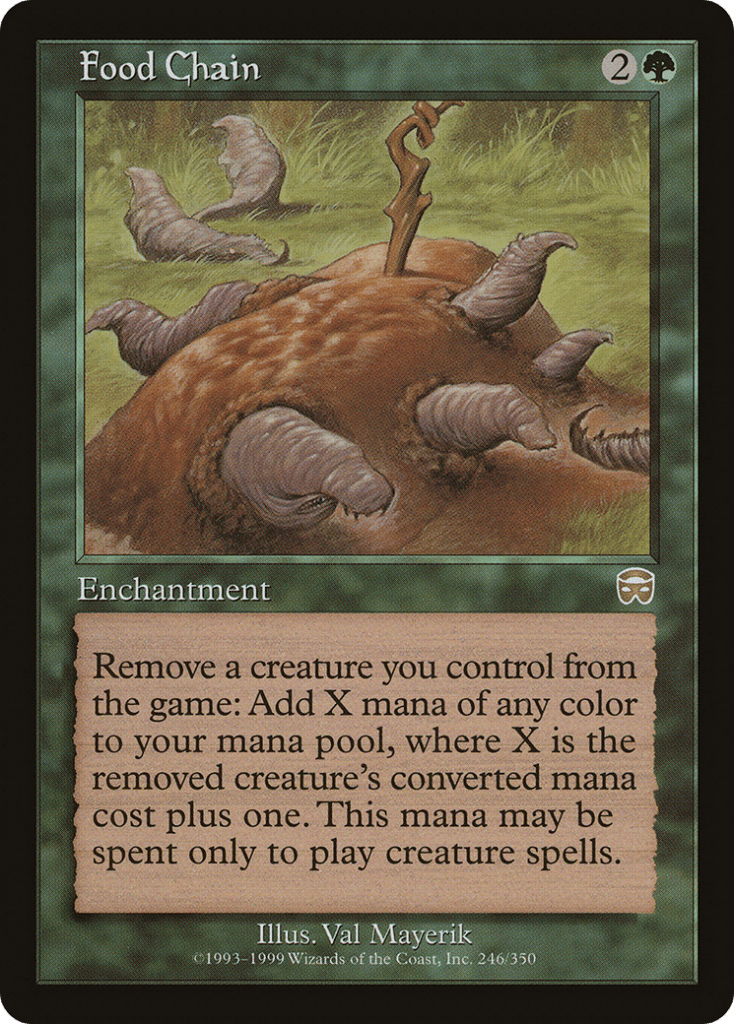
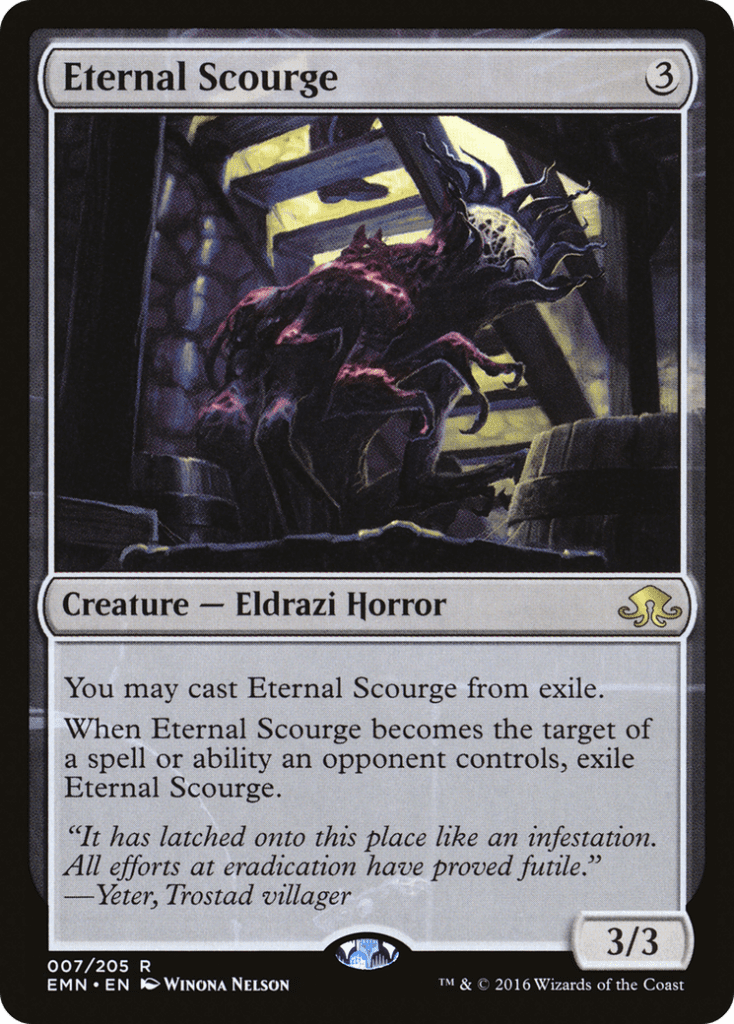
Because card designs usually treat sacrificing as a cost rather than a payoff in itself, they are far less likely to include additional limitations on how often an ability can be used, and you’re more likely to get valuable resources (mana, cards, other permanents) out of the exchange. Similarly, effects whose costs are measured in something other than mana tend to be easier to break.
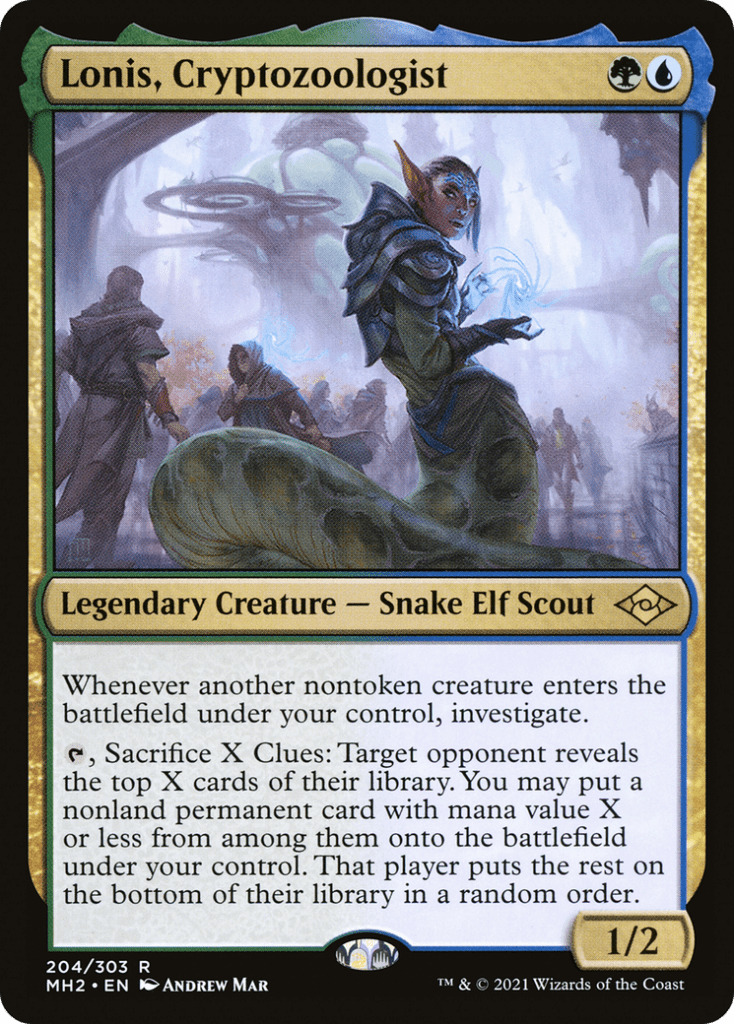
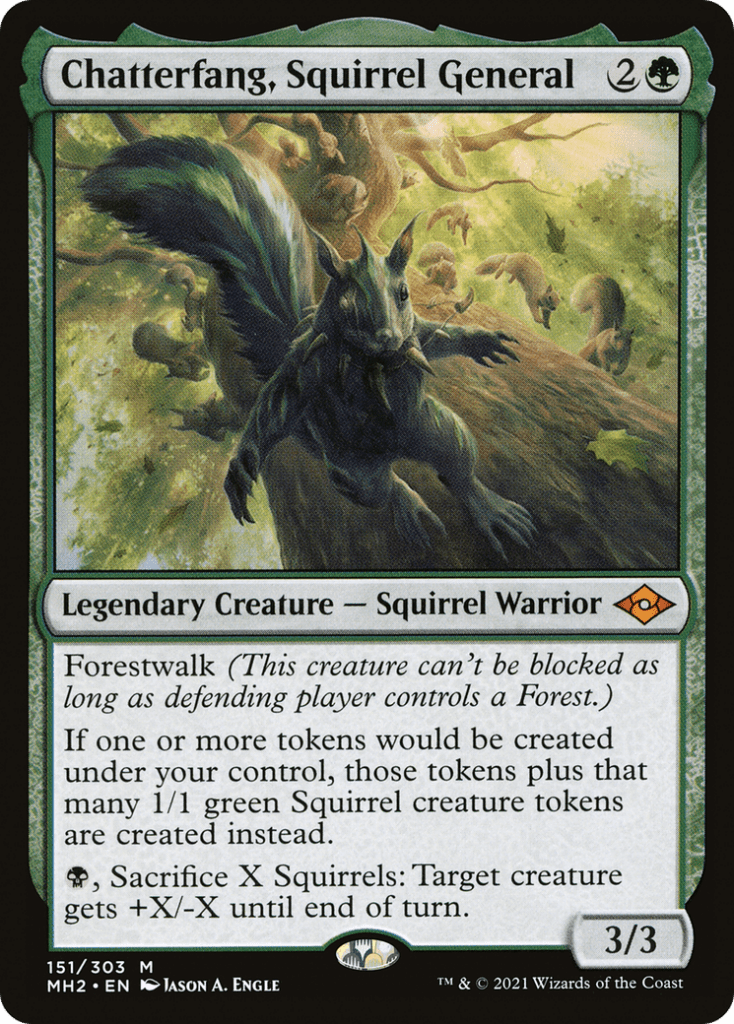
Wizards of the Coast is usually very careful about how fast they let players generate cards and mana, but they are far less strict about how fast you can generate, say, Clues or Squirrel tokens.
To me, these are the main reasons why sacrifice decks tend to so easily stumble into infinite combos. You’re already focused on producing a favorable exchange rate from one resource to another, and you’re almost never restricted in when or how often you make those trades. So the instant you find a combination of effects that results in a repeatable profit, you’re more or less won the game.
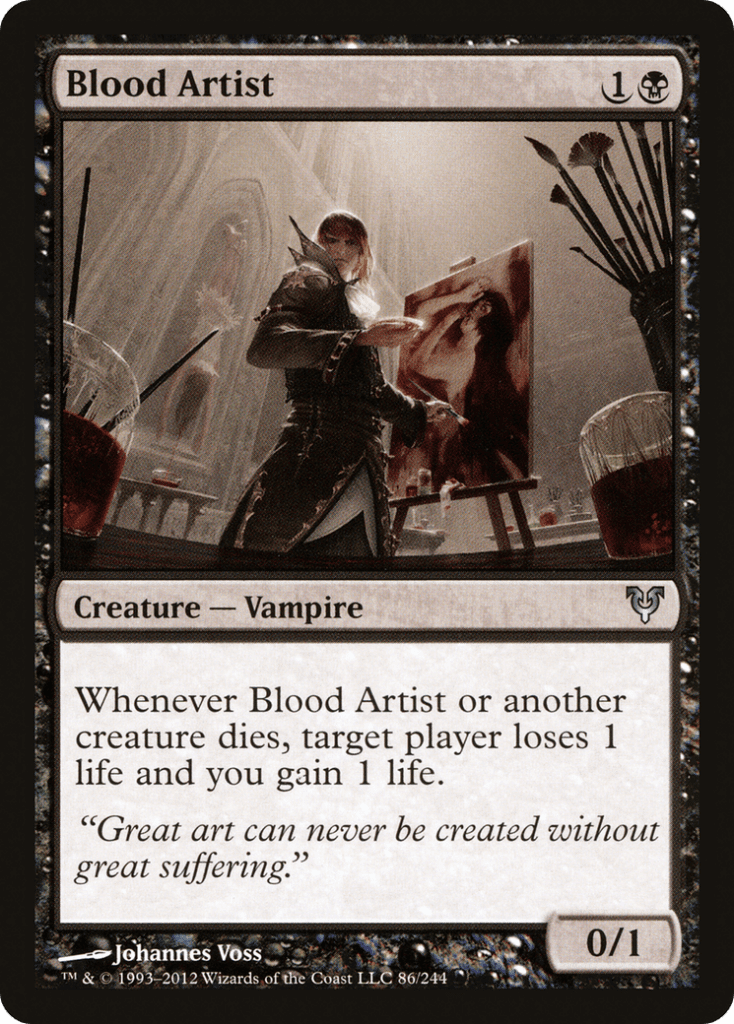
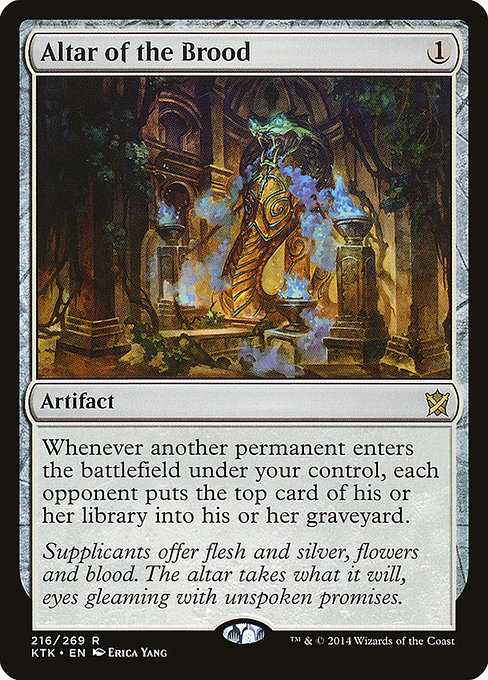
Due to their nature, these combos tend to be even more resilient than the average infinite. The pieces are frequently interchangeable, rather than being made up of specific cards.
For example, a deck can play many Blood Artist lookalikes, many Persist creatures, multiple ways to generate +1/+1 counters on them as they ETB and of course many sacrifice outlets. Relying on permanents for most of your combos also means reanimation effects can easily act as wildcard replacements for any previously killed or milled pieces. Sacrifice decks almost inevitably use this to great advantage.
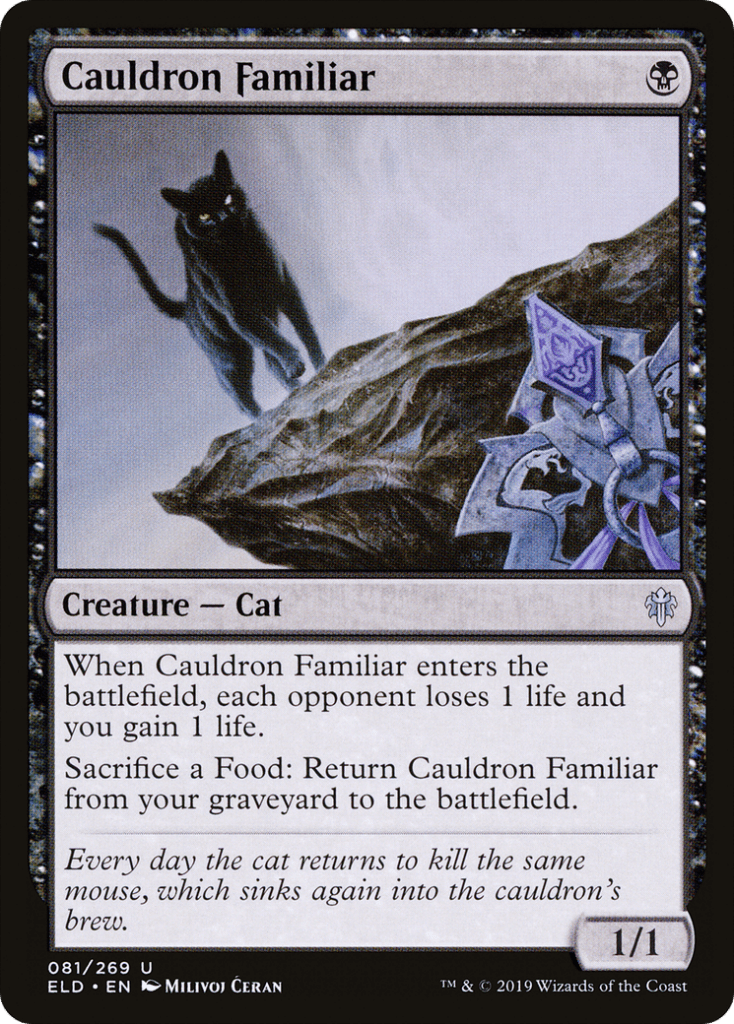
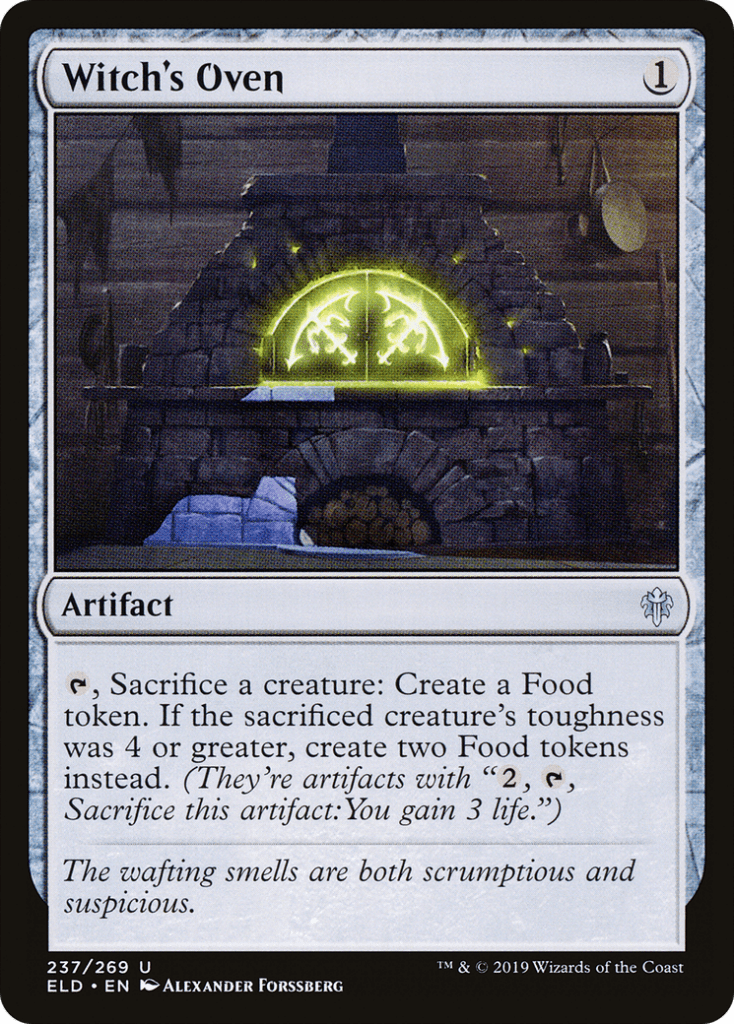
That kind of redundancy among combo cards is a boon for any deck, but it’s not even that easy to take those individual pieces out, as anyone who has played against Cat Oven combo in Constructed will tell you! The immense flexibility in when and how often to use their cards lets the sacrifice player shuffle key pieces between zones to dodge almost any removal or potentially beat attempts at disruption while going off by just re-initiating their combo on top of the stack.
It hardly feels fair, and it isn’t. But that’s not to say that “fair Magic” is beyond the reach of this archetype…
DOING IT THE HARD WAY
Regardless of whether a sacrifice player is currently threatening one of their many infinite combos, you can rarely afford to sleep on their boardstate or combat step. It’s remarkable how many support cards from this archetype double as mana-efficient scaling threats!
It’s even better when many such cards can make their home in your Command Zone, approximately doubling the threat level of their explosively-growing statline:
- Korvold, Fae-Cursed King
- Mazirek, Kraul Death Priest
- Kresh the Bloodbraided
- Juri, Master of the Revue
- Grismold, the Dreadsower
Of course, that doesn’t even get into all the ways other sacrifice commanders like Syr Konrad, the Grim or Meren of Clan Nel Toth are able to profit off the ebb and flow of the battlefield. There might be more directly synergistic commander choices for this archetype than any other single strategy, and there’s no shortage of choices for the 99 either.
Payoffs like Haruspex, Deathbringer Thoctar, Sadistic Glee or Blade of the Bloodchief can even trigger off opposing permanents, which makes them nasty for multiplayer even if your own engine is completely stalled. In the right types and quantities, these fair payoff cards can effectively punish treasure decks, opposing infinite combos, even board wipes!
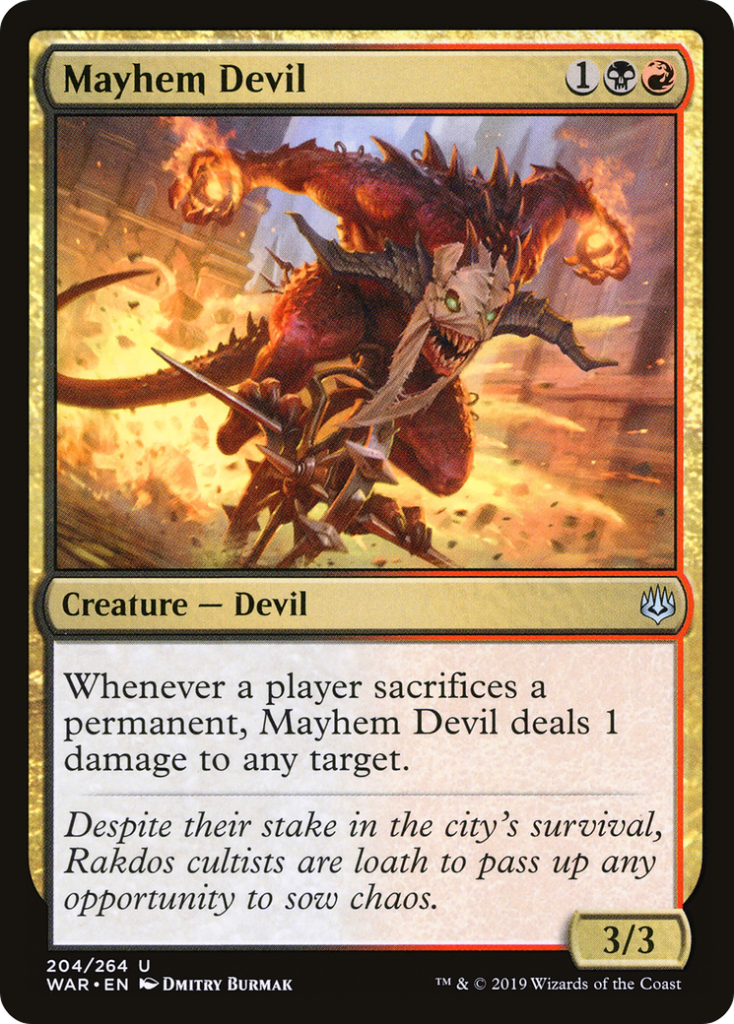
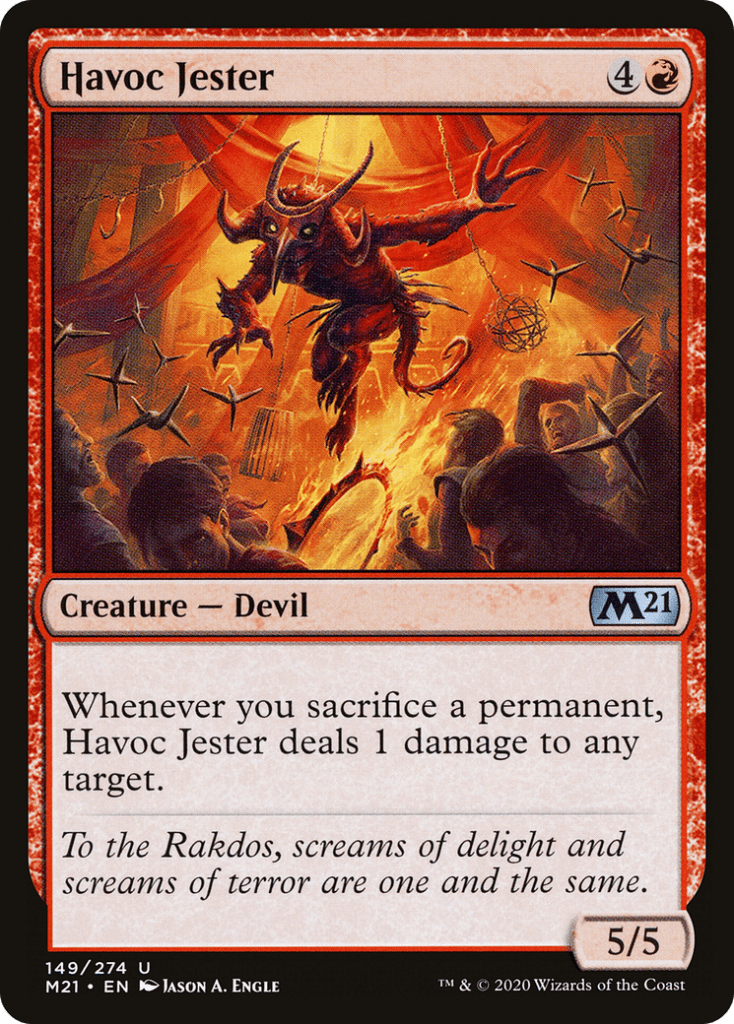
It’s yet another feather in the peacock-like cap of sacrifice decks that they can replace narrow hate cards or combo pieces with something as reliably impactful as Mayhem Devil.
It’s also a testament to the inherent explosiveness of the sacrifice playstyle that almost any value-adding trigger quickly becomes game breaking when coupled to it. So even when you can’t quite assemble an infinite, simply playing the cards dealt to you will usually lead to lethally-large Body Droppers and Mortician Beetles in a hurry, because…
SACRIFICE IS EVERYWHERE
One of the time-honored joys of Commander is tracking down forgotten, obscure replacements for classic staples which will fit within your chosen themes. But that process barely applies to sacrifice decks because so many great cards already tie into it.
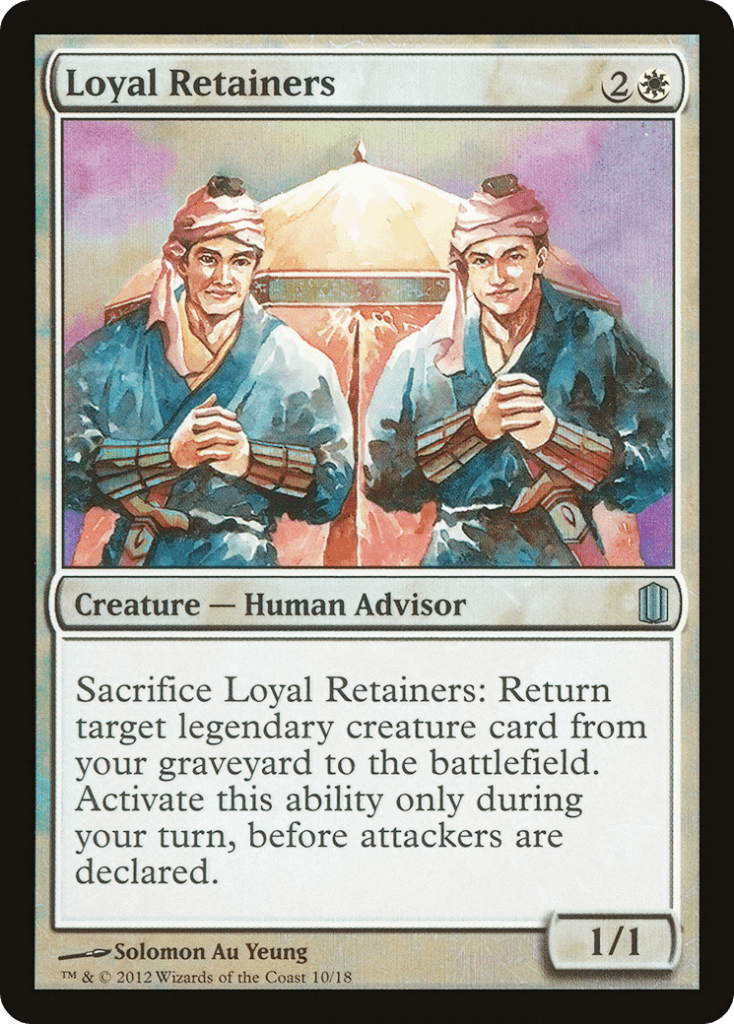
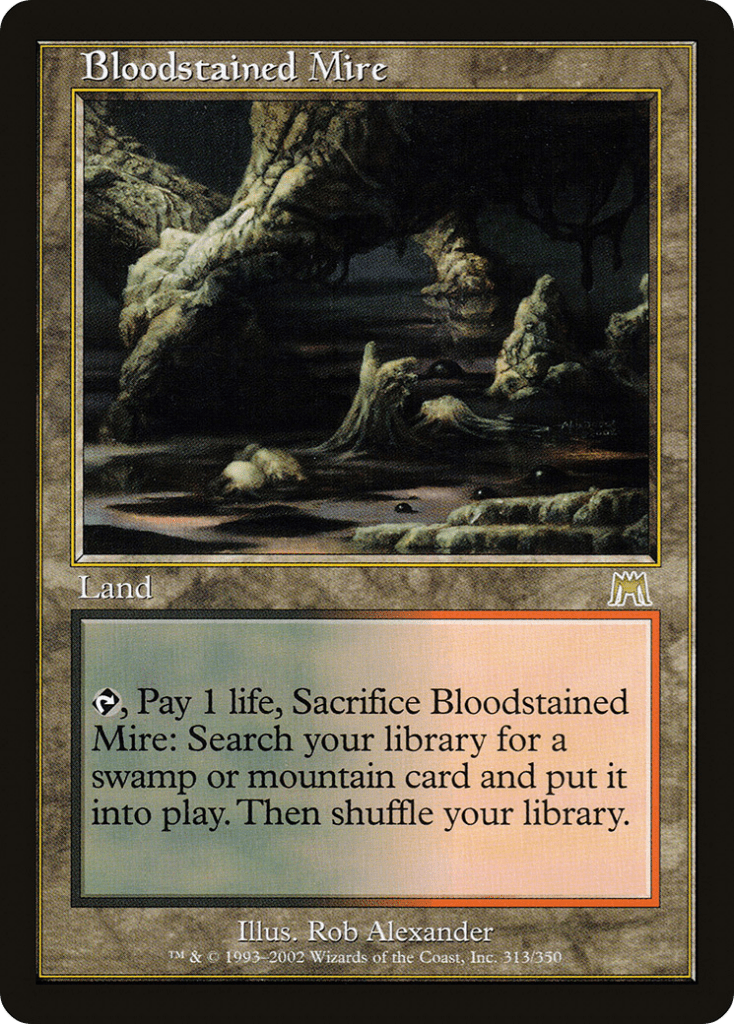
Maybe it’s not revelatory to point out how good it is to get a bunch of triggers off someone cracking a fetch land, but it is a pretty massive upside to building around one of Magic’s foundational mechanics. Other prominent mechanics that incorporate (or freely enable) sacrifice include: Food, Clues, Treasures, Sagas, Unearth, Encore, Evoke, any other temporary tokens such as Faerie Artisans or Hostility, cards with Upkeep, Quests, Exploit, Casualty and now Bargain!
The consistency with which sacrifice gets built into these set mechanics means there’s new, pushed support cards being printed for the archetype all the time; an enviable position for any deck builder who loves searching for tweaks and upgrades. No matter what else changes about Magic, there will always be ways to profit from permanents dying, and advantages to making sure they die on your terms.

Tom’s fate was sealed in 7th grade when his friend lent him a pile of commons to play Magic. He quickly picked up Boros and Orzhov decks in Ravnica block and has remained a staunch white magician ever since. A fan of all Constructed formats, he enjoys studying the history of the tournament meta. He specializes in midrange decks, especially Death & Taxes and Martyr Proc. One day, he swears he will win an MCQ with Evershrike. Ask him how at @AWanderingBard, or watch him stream Magic at twitch.tv/TheWanderingBard.

